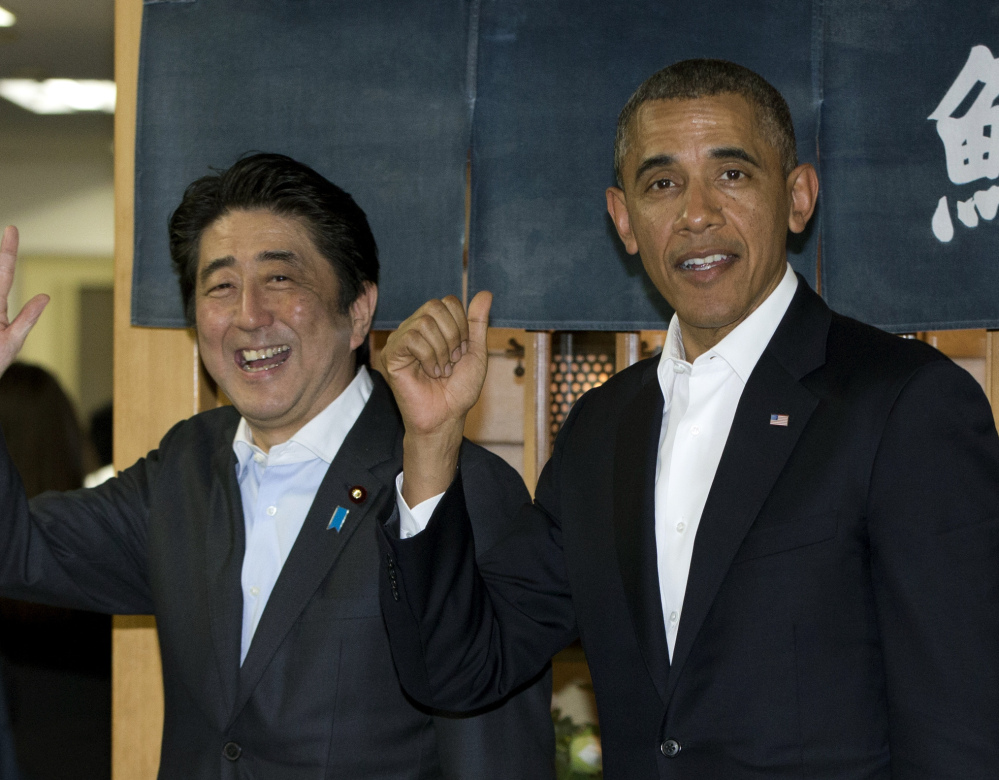TOKYO — President Obama kicked off a tour of Asia on Wednesday with a pointed message to China and the entire region: The United States stands resolutely with Japan in a long dispute over some small islands in the East China Sea.
As Obama landed in Japan, news here was dominated by his comments to a Japanese newspaper that the string of islands subject to a bitter Chinese-Japanese dispute fall within the scope of a U.S.-Japan security treaty.
U.S. policy is clear, the president said in written remarks to The Yomiuri Shimbun, that the tiny, uninhabited islands are administered by Japan and “therefore fall within the scope of Article 5 of the U.S.-Japan Treaty of Mutual Cooperation and Security.”
Obama’s statement affirmed longtime U.S. policy; Defense Secretary Chuck Hagel conveyed a similar message last November in a call with Japanese military officials. But by sending the message at the start of a weeklong trip to Japan, South Korea, Malaysia and the Philippines, the president worked to reinforce a key purpose of his voyage, reassuring allies about U.S. commitment in a region that’s anxious about China.
The Chinese government took offense at Obama’s remarks. Foreign Ministry spokesman Qin Gang said the United States “should respect the facts, in a responsible manner abide by its commitment not to choose sides over a territorial sovereignty issue, be cautious on words and deeds, and earnestly play a constructive role for peace and stability in the region.”
China rattled nerves in the region last November when it expanded its airspace to claim control of the air zone over the contested waters between itself and Japan.
But Chinese state media also reported that numerous countries, including China and the United States, have agreed to a code of conduct in order to reduce conflict and encourage communication over any encounters in the East and South China seas.
Obama isn’t visiting China on this trip, but the country will loom large as the United States looks to assure Japan and other allies that its relationship with China won’t affect its relationship with other Asian countries. China’s assertion of a “great power” relationship with the United States has other countries worried that the two will create a relationship that excludes the others.
“We welcome the continuing rise of a China that is stable, prosperous and peaceful and plays a responsible role in global affairs,” the president told the Japanese newspaper.
Send questions/comments to the editors.



Success. Please wait for the page to reload. If the page does not reload within 5 seconds, please refresh the page.
Enter your email and password to access comments.
Hi, to comment on stories you must . This profile is in addition to your subscription and website login.
Already have a commenting profile? .
Invalid username/password.
Please check your email to confirm and complete your registration.
Only subscribers are eligible to post comments. Please subscribe or login first for digital access. Here’s why.
Use the form below to reset your password. When you've submitted your account email, we will send an email with a reset code.